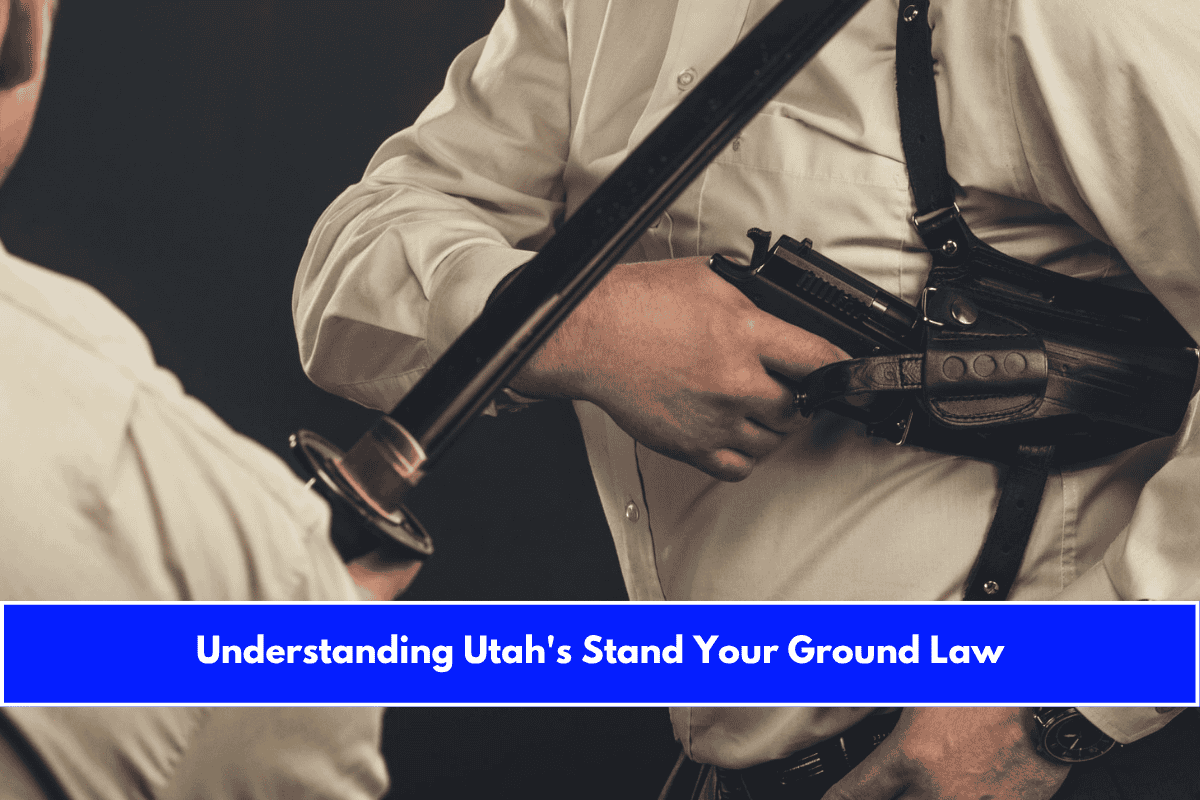Utah’s Stand Your Ground law allows individuals to use force-including deadly force-for self-defense without any legal duty to retreat, as long as they are in a place where they have a legal right to be and are not engaged in criminal activity. This law applies whether you are in your home, in public, or on any property you have a right to occupy.
Key Provisions of the Law
- No Duty to Retreat: You do not have to attempt to escape or withdraw from a confrontation before using force, even deadly force, if you reasonably believe it is necessary to prevent death, serious bodily harm, or a forcible felony (such as murder, rape, or robbery).
- Reasonable Belief: The use of force must be based on a reasonable belief that it is necessary to prevent imminent harm to yourself or others.
- Proportional Force: The amount of force used in self-defense must be proportional to the threat faced; deadly force is only justified to prevent death, serious bodily injury, or certain violent felonies.
- Legal Right to Be There: The law only applies if you are in a place where you are lawfully present and not engaged in criminal activity or acting as the aggressor.
Castle Doctrine in Utah
Utah also follows the “Castle Doctrine,” which specifically allows you to use deadly force to protect yourself against intruders in your home without any duty to retreat. This doctrine is a subset of the Stand Your Ground principle, applying specifically to your residence.
Legal Process and Burden of Proof
- Pretrial Justification Hearing: If you claim self-defense under Stand Your Ground, you are entitled to a pretrial hearing. The burden then shifts to the prosecution to prove, by clear and convincing evidence, that your use of force was not justified.
- Protection from Civil Liability: Utah law offers some protection against civil lawsuits for those who lawfully use force in self-defense.
When Self-Defense Does Not Apply
Self-defense is not justified if:
- You are the initial aggressor (unless you attempt to withdraw and are pursued).
- The threat is not imminent or credible.
- The force used is excessive relative to the threat.
- The use of force is retaliatory rather than protective.
Summary Table: Utah Stand Your Ground Law
| Provision | Utah Law (2025) |
|---|---|
| Duty to retreat | No, if lawfully present and not the aggressor |
| Use of deadly force | Allowed if reasonably necessary to prevent death, serious injury, or a forcible felony |
| Applies in public | Yes |
| Applies in home (Castle Doctrine) | Yes |
| Burden of proof in court | Prosecution must prove force was not justified |
| Protection from civil liability | Yes, if force was lawful |
Utah’s Stand Your Ground law means you are not required to retreat before using force in self-defense, provided you are lawfully present, not the aggressor, and reasonably believe force is necessary to prevent imminent harm.
The law offers strong legal protections, but misuse or excessive force can still lead to criminal charges. Always ensure your actions are reasonable and justified under the circumstances.
Sources:
- https://le.utah.gov/xcode/title76/chapter2/76-2-s402.html
- https://crateclub.com/blogs/loadout/understanding-utahs-self-defense-laws-what-you-need-to-know
- https://en.wikipedia.org/wiki/Stand-your-ground_law
- https://giffords.org/lawcenter/state-laws/stand-your-ground-in-utah/











Leave a Reply